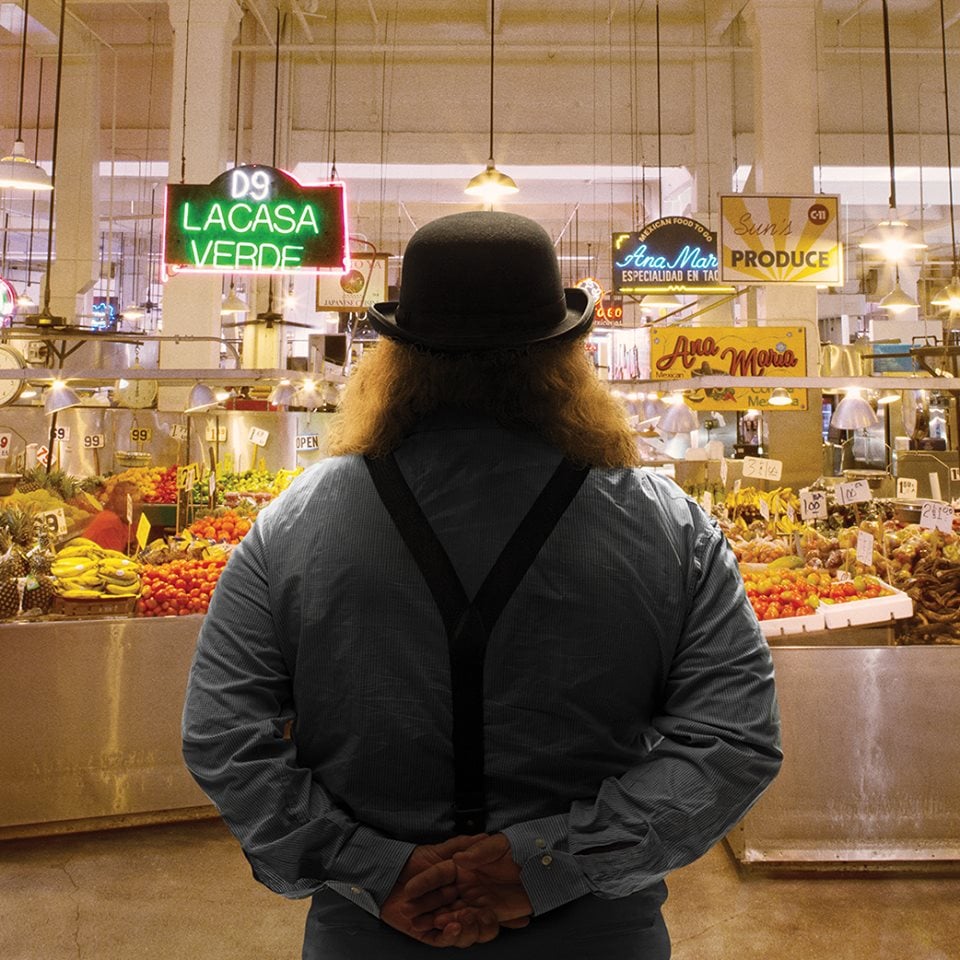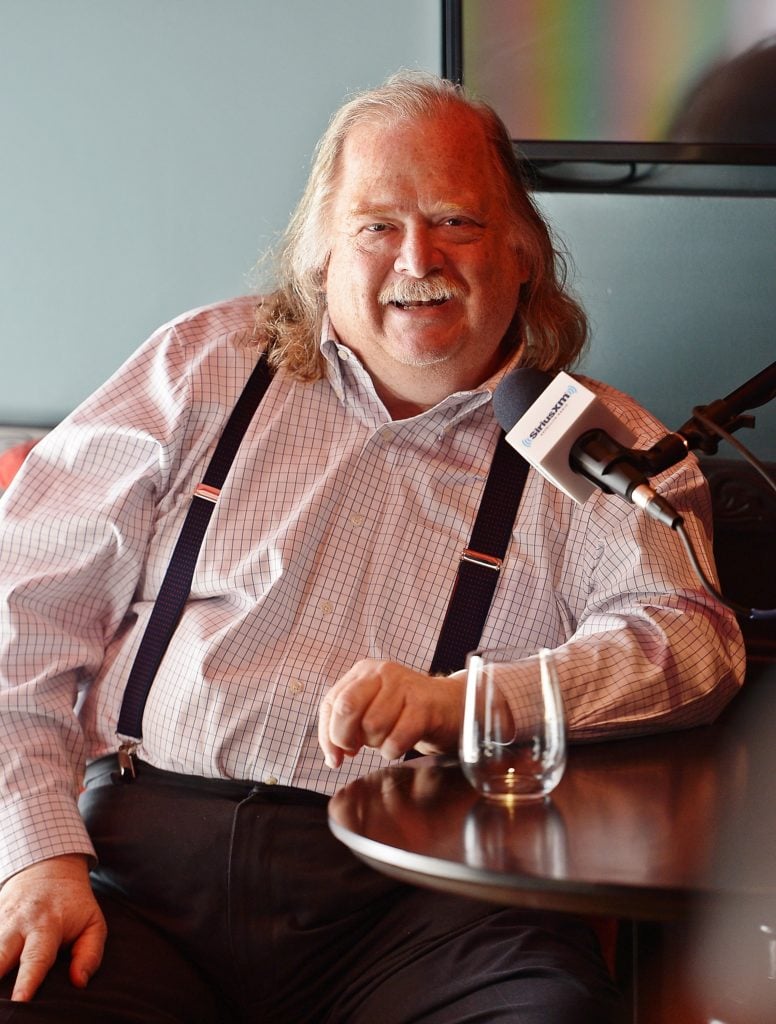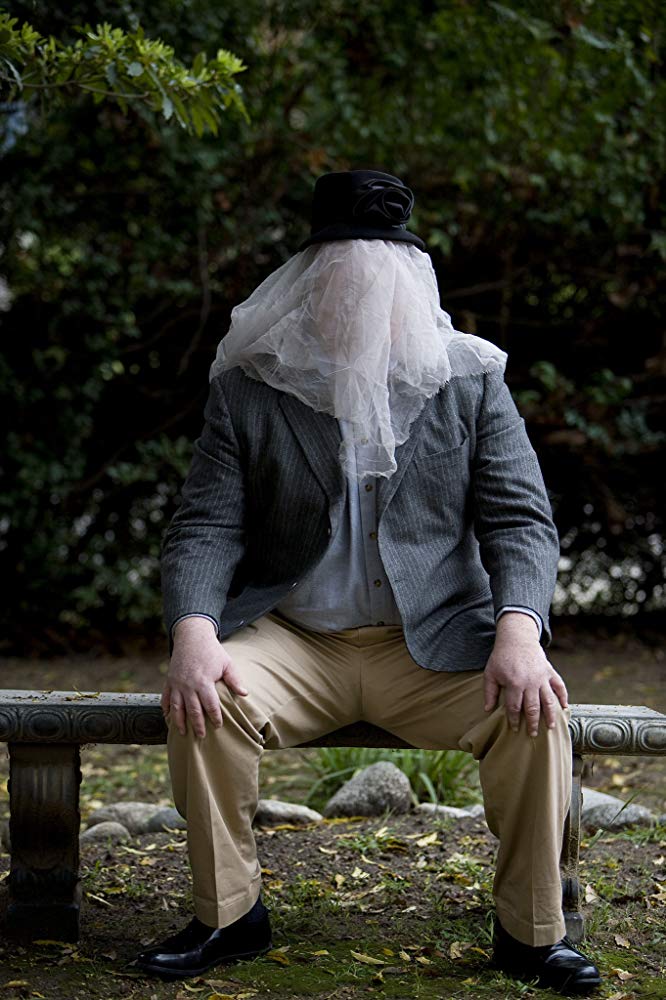Art World
Remembering the Short and Surprising Art Career of Jonathan Gold, LA’s Beloved Poet of Vernacular Cuisine
Before he became a Pulitzer-Prize winning food writer, Gold took a brief detour into the LA art scene.

Before he became a Pulitzer-Prize winning food writer, Gold took a brief detour into the LA art scene.

Janelle Zara

The city of Los Angeles is in a state of mourning. On Saturday, the beloved, Pulitzer Prize-winning LA Times food critic Jonathan Gold died of pancreatic cancer at age 57. The loss was felt not only in the culinary world but by countless other critics, journalists, and readers, who looked at his work as a unifying Los Angeles institution.
Lionized for his expert knowledge of LA’s mosaical food scene, Gold once also made a brief, lesser-known foray into the city’s art world. While majoring in music history at UCLA, he had taken an art class taught by Chris Burden. “He said he always felt a little more affinity with the art department,” says LA artist Tulsa Kinney, a friend of Gold’s who had also sold him a handful of her own works. For him, she says, the music department was “a little too conventional.” She recalls his affinity for plugging his cello into an amplifier and playing Jimi Hendrix riffs.
As a project for Burden’s class, Gold came up with a performance that hinted at his future calling: He once ordered two water bagels from every Jewish deli in the city and paid entirely in pennies. He would eat one, then hang the other on the studio wall. According to the New Yorker, it’s how he discovered the wonders of Brooklyn Bagel Factory.

Will Guidara with Los Angeles Times food critic Jonathan Gold on May 3, 2018, in Los Angeles, California. Photo by Charley Gallay/Getty Images for SiriusXM.
Gold worked in Burden’s studio as his assistant from 1979 to 1980, becoming, briefly, a performance artist in his own right—specifically a “naked performance artist,” he once told Ira Glass. On a 1999 episode of “This American Life,” he recounted one early ’80s nude performance that took place in a West LA warehouse. He arrived stark naked with a machete in one hand and with a live chicken tethered to a three-foot rope tied around his waist.
“I hacked up and down blindly with a machete,” he told Glass. “I had fully intended that, in fact, I would kill the chicken in the midst of this performance. But chickens aren’t that stupid. And this chicken wanted no part of the machete, stayed at the end of its rope the entire time, apparently. And after 10 minutes, when I was completely exhausted, I fell to a heap, and everybody left. And the performance was over.” (Gold later described the moments after an art performance ends as “some of the most depressing in the world.”)

Still from City of Gold (2015). IFC Films, © Courtesy of Sundance Institute.
Gold’s career as an artist somehow never took off. His following performances were as a rock musician, playing his electric cello with various LA indie bands.
He was a music critic for LA Weekly before taking up food criticism in 1986, but even his early culinary explorations had a performative air. In the early ’80s, he felt compelled to “create sort of a map of the senses,” writing up all the restaurants along Pico Boulevard. For the project, he gave himself a set of elaborate rules:
“I had to go to each restaurant in order. If the restaurant was closed, I could go to the next restaurant on the list, but means the next time I was out, I had to go back to the one that I had missed the first time. If a restaurant was really bad, I could skip out after a bite or two. If a place wasn’t really a restaurant but, say, a candy store that also happened to sell hot dogs, then I’d have to try the hot dog, but I wouldn’t necessarily have to make it part of my meal… Street vendors, push carts selling tacos or mangoes were optional.”
Beyond Pico, Gold went on to chart the vast and widely varied Los Angeles culinary scene. Not unlike the recently passed Anthony Bourdain, he used food as a means of cultural exploration. His evocative prose took an almost painterly approach to the minute details of each meal, a skill he attributed to his arts education. “The ability to describe abstract sensations, which I learned to do as an undergrad in music and art courses,” he once told a group of UCLA graduates at their commencement ceremony, “turns out to be exactly what I needed to know.”